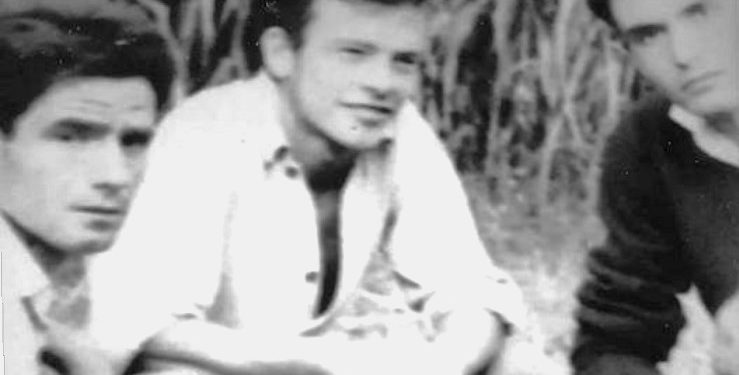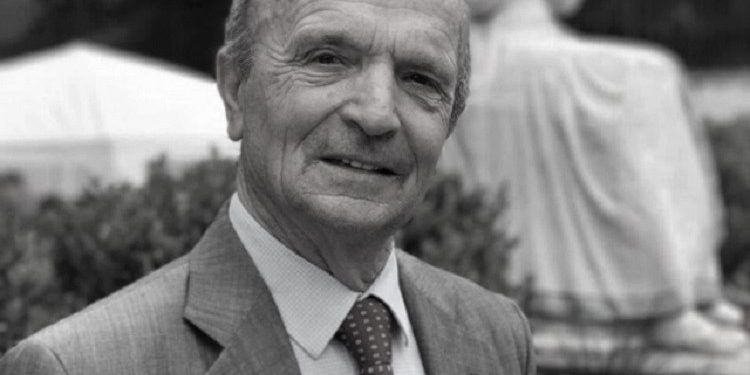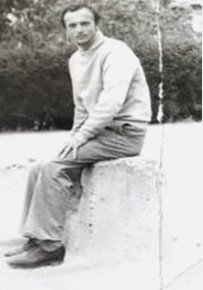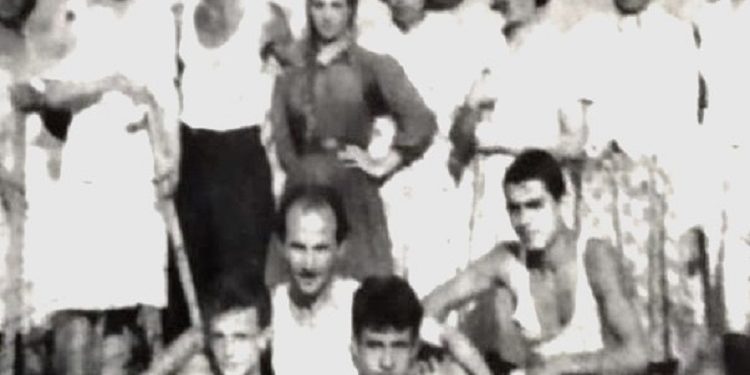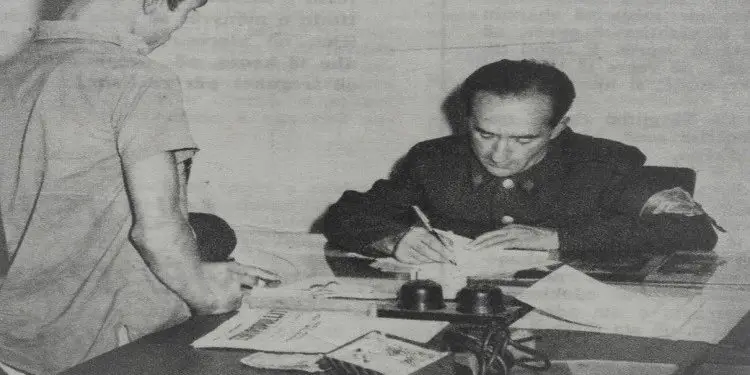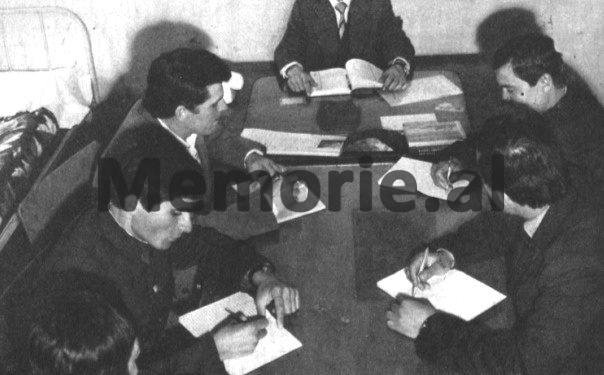By SIMON MIRAKAJ
The sixth part
Camps under the shadow of Tomorr, 44 years of internment’
Memoir
Memorie.al / I put these memories down on paper after a long period of hesitation. This is probably because the subjects were always fresh in my mind, which followed me mercilessly during the years after the fall of communism. But there comes a moment – when time takes its course – and the images of horror and suffering came fading to me – almost the suffering passed into oblivion. Then I decided to repeat the most impressive events – first in my mind – until they took the form of these narratives. As dim as these accounts may seem – they create the idea of the harsh reality and misery of the camps.
Operative’s Fist and Fran Tina
The appeal was usually made by a party trustee, after the party had received the approval of the Department of Internal Affairs. From 1966, the class struggle was getting tougher every year. In this period of time, the operative, Kosta Silo, often called us.
Out of his zeal, he put us on the list to send us to the Gjaza e Lushnje internment camp. When we asked him for permission to go to his sister in Savër, he told us:
– “I give you permission, but Savra does not accept you.”
We put our lips on the gas and drive away. He came from Lushnja by bicycle. In his office, there was also a bed; he had no problem eating, because there were enough people who offered him lunch and dinner. He liked the gun and didn’t put his hand in his pocket…!
If your name was called and at that moment you were not present and came late, you would be punished by the operative. You were forced to wait until the end, to clear up the slack at the right time. After the operative heard the reason, he then made the decision that the interned person should run around the field, where the appeal was made. I would run around until the operative said:
– “Enough, now go and don’t repeat it next time”.
This punishment was given to anyone, regardless of age. I remember an old man, who was jogging, made two laps and stopped.
– “Keep running! – shouted the operative, – that I came with kicks”. – The desolate old man started running again.
Operative Kosta, after finishing the appeal, went out into the street and was waiting for two people who had not appeared in the appeal, Fisnik Spahiu and Fran Tina. The nobleman was then, I believe, a boy of about 26 years old. When the operative approached, he asked:
– “Why are you late”?!
The nobleman did not manage to, when the operative’s fist suddenly hit him. The nobleman saw himself in the canal. After Fisnik, Frani was coming slowly, who saw the scene. When he approached, the operative asked him with all his anger:
– “And you, why are you late…”?! – and made his fist ready. Then Fran says:
– “Be careful, I am not Fisnik Spahiu”. – The operative stopped, turning to Fran:
– “Ma q… mother, Fran Tina, because you will see me”.
After a year, Frani is arrested and sentenced to 23 years in prison. He left his wife with four small children. Fran’s wife was a Yugoslav citizen, after many efforts she left with her children and was repatriated. Fran ends the prison manfully and for a while, he joined his family. Suffering did not give him much chance to live longer.
Frani and Fisniku (not living), will be remembered with respect, by all fellow sufferers. May they rest in peace?
Aksionistja – Gjaze, 1970
In the farm sector where we stayed as internees, there was talk that student activists would come. That day I went to work happily, even though I knew I would be working in the channel. With pleasure, when I came back from work, I would enjoy seeing some beautiful girl, although I knew that they would stay away from us and look at us as enemies that are how they would take orders.
I was tired and crushed, I could hardly drag my legs, I was covered in mud, when I approached the sector, I saw the cars (three) full of students, who were singing the song for the leader “Enver Hoxha…o hello…”, I said to myself: “How they are not ashamed”.
I stopped at a channel that had water and, I started to wash my boots, the shovel that had been covered in mud, I washed my face, and I left. Cars were driving into the sector, screaming; “Enver Hoxha, Enver Hoxha, Enver Party, we are ready whenever”.
– “What kind of youth is being prepared, God save us…”?!
They started getting out of the cars, took the mattresses and started filling them with straw.
At dinner, as always, at the appointed time, we appeared in front of the captain, while the students began to walk in different directions in groups. Two students, one of whom stood out for her attractive appearance, were accompanied by the sector’s youth secretary.
When they saw us with the captain, one asked the youth secretary:
“And these are friends with the policeman”? – “No mine, these are enemies”.
– “Why, what have they done”?!
– “Damn it, as far as I know, they told us: So that these people take power from their hands. They are dangerous.”
– They were looking at us as if in pain, they walked forward, they turned back, we exchanged glances, and one saw me, put her lips on the gas. The youth secretary tells the two students.
– “I’m leaving, because I have a youth meeting.”
– “How glad we are that you left, you complete ignoramus”! – said one of the girls.
– “Ana, did you see those enemies? They seemed to be good people, at least by appearance, by appearance; one was like an artist, not like these unwashed. My mother told me: Be careful not to get mixed up with any boy, one of those enemies, because he will take us by the neck”.
The two girls stayed on the street for a while and left to go to barracks, where they would spend the night. I left too, taking their silhouette with me.
The next day at work we were harvesting corn, the heat made our work more difficult, while I was wiping the sweat, I raised the can of water to drink, when I look at the girl who had drained in sweat and, with her lips in gas and, with a look sweet, he said to me:
– “Please, can you give me some water?”
– “Drink as much as you want, but it’s hot.” – He took the can, drank it, and sat down nearby.
– “Please, – I say to him, – because if they see you, they will scold you for drinking the enemy’s water, and you will have trouble.” – She got up and left, we were both looking at each other. Anna was waiting for him:
– “Did you drink water”?
– “I drank, but I still have his face and I feel like he’s following me.”
– “It seems to me that you are taking coal”! – Dorina laughed.
– “His look, his appearance, struck me, a melancholy look, which will accompany me for a long time. My calm has been disturbed, at night I remember my mother’s words, while I have photographed her in my eyes”.
– “You’re right, Dori, because I was also very impressed by his attractive appearance.”
After work in the evening, as always, the walks began. Ana and Dorina, as always together, I didn’t know they were behind me. When I entered the backyard, they shouted:
– “Wow, there are figs”. – I heard Dorina saying to Anna.
– “Say, can we eat some figs”? – I turned my head and directed you.
– “Yes, ride, just be careful not to fall.”
They went upstairs and I left to enter the room, when Dorina says to Ana:
– “What a guy, how did he leave, are you saying we really came to eat, I came to see him”.
Ana says:
– “I came to eat, you came for that”! – they both laughed out loud.
After a while I left the room, they came down from the fig tree when they saw me. Dorina approached me:
– “Thank you for having fun, the figs were very good”, and, with a trembling voice and shining eyes, he told me:
“Can I hug you, because tomorrow we’re leaving, the action is over”, he extended his hands, “come a little further behind the reeds, because they won’t see us”.
We hugged, not knowing what we were doing. We parted, saying goodbye to each other, eyes downcast. Dorina grabbed Ana’s hand, asked for help; she didn’t have the strength to walk, leaned on Ana, left without turning her head, while I followed her for a few minutes with my eyes, asking her to forgive me if I was guilty.
I entered the room, lay down, and turned on the radio, to listen to music. This is how I conveyed the boredom that had gripped me. I closed my eyes, I didn’t want to look at anything, everything around me looked ugly, maybe even myself. Guilty without guilt.
Shoemaker – Gjaze 1975
In 1960, on the eve of the breakdown of relations with the Soviet Union, arrests began throughout Albania, to incite terror and remove any hint of a change in the communist course. There were arrests, deportations and within the type, as members of the Political Bureau, members of the Central Committee, etc., accusations against them were standard: spies of the Soviet Union.
Some of those arrested by the enemies of the class, or “declasses”, as they called them, one of the accusations was that you insulted Khrushchev. When the Albanian Communist Party began to openly insult Khrushchev and his clique, the arrested and their families, the hope was born that they would win their innocence, but they did the whole prison, without even deducting the article that had increased the sentence, that they had insulted Khrushchev.
As I said above, in that period there were arrests all over Albania, in internment camps, in villages and towns, the most endangered were the areas that were closer to the border, because for those arrested in these areas, the charges were more serious , the State Security, in cooperation with the Internal Branches and the party organizations of these areas, also created groups that were accused of “overthrowing popular power”, groups that were accused of being “agents of foreign services”, etc.
Of Leskovik’s group, some received capital punishment, others were sentenced to prison. The tragedy did not end here, it continued to the families, that their property was confiscated, what was left from the confiscations of 1945 and they were sent to internment camps.
Several families from Leskovik came to Savër, whose family members had been killed or imprisoned, such as; the Kuqeshi family, Tasho, Iljazi, Zoga, Çapani, a part of the Cani family, that the two brothers of this family, sent to Gradishte. They were quite hardworking people and after a while, they changed jobs. The two brothers of this family, who lived in Gradishte, became a brigadier, while the other brother became a shoemaker. Shoemaker and brigadier, it was a privileged job, which could only be done by those who had a good or improved biography.
From 1975, the shoemaker who lived in the Gradishte camp was brought to Gjaza, since Gjaza did not have a shoemaker, and for a nail, people went to Gurëz, which was the center of the cooperative, and the internees to go there had to get permission from operative. The shoemaker, since he was in a job that had company with the upper echelon of the sector, such as the head of the sector, the head of youth, the secretary of the party, etc., thought that he had escaped the class war.
This layer of the privileged, like; barbers, bread and food sellers, shoemakers, brigadier, were also liked by the girls, who had good biographies, who were not declassified. After some time, one of these girls fell in love with the shoemaker; she had graduated from the agricultural secondary school, worked in the kindergarten, as a caretaker, the girl’s family, had a better biography than the shoemaker.
Her father was a nurse, he had been a partisan, as a family they were good, they looked after their work, all the children of this family had finished high school and they had respect for us, but they could not accept this relationship, maybe they could have it out of fear, they were also afraid of each other, the class war, had sharpened the sword, against the enemies, (according to them) even though the shoemaker had improved the biography, they could not accept this connection, when they the analysis, he came out affected, his father had been killed, for political reasons.
Love knows no bounds; it crosses the boundaries of politics, that’s what those lovers thought. The cobbler, in agreement with the girl, smelling the impossibility of legalizing her love and crowning her, together decide the day to kidnap her, after seeing that legal marriage was impossible. The shoemaker did not open the shoe shop for several days, the girl was not seen in the garden, and word immediately spread that she had been kidnapped by her boyfriend. The youth organization, the party, the women’s organization, the front, etc., are alerted after a meeting of several hours they decide to go to Gradishte, to get the bride.
We see that in the camp, in Gjaze, a “Zis” car came from the farm, it slowly fills up with young people, they put the portrait of Enver Hoxha in the car cabin and with the flag at the top, they start the song; “Enver Hoxha tunjatjeta”, the car leaves for Gradishte, when they got there, they inform the party leaders of the Gradishte camp about the decision they had made, they go together to the cobbler’s house, take the bride, saying that; you are not worthy, to take our daughter. With songs and dances, for the heroic act they performed, they leave the Gradishta camp. The girl, who was getting ready to become a bride, is sent to a village where her married sister was. The shoemaker never returned to Gjaza, while she got married after a few years, creating another family.
Mount Tomorrit
The wheat harvest was approaching. In order to get the harvesters in to harvest, the mouths had to be demolished. It was quite heavy work, with a pickaxe, and the heat of June added to the difficulty.
In the beginning, the wheat of the gorge was harvested, and then the demolition began with a pickaxe. The closing of the mouths had to be done in the form of a ridge, so that the harvester would not have an obstacle. Hands were blistered.
At dinner, after we had made the appeal, the brigadier said to me: “You, Simon, Xheviti and Gjoni, will go with the sled.” The sled was pulled by the tractor, it was loaded with the wheat straw left by the harvesters. “Be careful that the tractor is on and waiting for you.”
– “But I have been working all day, how can I go at night?”
– “The tractor is on, don’t sabotage the work.” – We left, there was no other way, if you didn’t go they would charge the tractor and accuse you of sabotaging the economy, the consequences were serious. A few days ago, in the sector where we lived, a meeting was held where the sector manager, the party secretary, declared:
– “To make life unbearable for your enemies”. They forgot that there is a God who protects us and keeps us invincible.
We worked all night. At 8 o’clock in the morning, I returned from work, slept until 11, got out of bed and went out into the street. I look in front of Dom Mikel (Koliq) who was building the sheets on the wire, the sheets shone with whiteness. Where should I go? In Gurez, which was 500 m. away, I had to get permission in writing, from the person in charge of the appeal.
Fieri i Ri was a “forbidden apple” (it was 2 km away and a written permit was required). I walked a little; the road was empty, only a villager was pulling the rope of the cow, which was grazing on the side of the canal. I stopped, I found myself in front of Mount Tomorri, a magnificent sight.
I said to myself: “After Tomorri, there is Berati, but who is after Berati”? – Përmeti, Korça, Gjirokastra – I started to move like a compass. From afar, I noticed that the teacher from the village of Ngürez was coming. I said to myself, I’ll ask him: “Where is Vlora, Saranda”? But what if he sues me, that; “Simon asked me where Saranda falls”? Then the Security, (the operative, would open the file for escape attempts)!
So the teacher passed by, and I didn’t ask him. I started walking, following the shadow, it was very hot, I was wearing a straw hat, which my sister had made for me. I walked to the bridge, there was our border, nearby a group of women and girls, who looked like seagulls with those straw hats covered with a white cloth, were selling.
They would leave the plot and enter the canal in front of them with all their clothes to cool off. I also decided to wash and cool off in the canal. I dived in, it wasn’t deep, up to the waist, I checked it, because I didn’t know how to swim. After diving several times, I got out of the ditch and lay down on the street, covering myself with the dust, which was abundant.
I lay down a little and sank back into the canal.
Refreshed by the canal water that washed away my fatigue, I headed home. Memorie.al




